S T . B E R N A R D ' S M A G A Z I N E
LIGHT KINDLED BY A LEAPING SPARK: EDUCATION BEYOND INFORMATION
BUILDING UP THE LOCAL CHURCH: ST. BERNARD’S ON THE ROAD
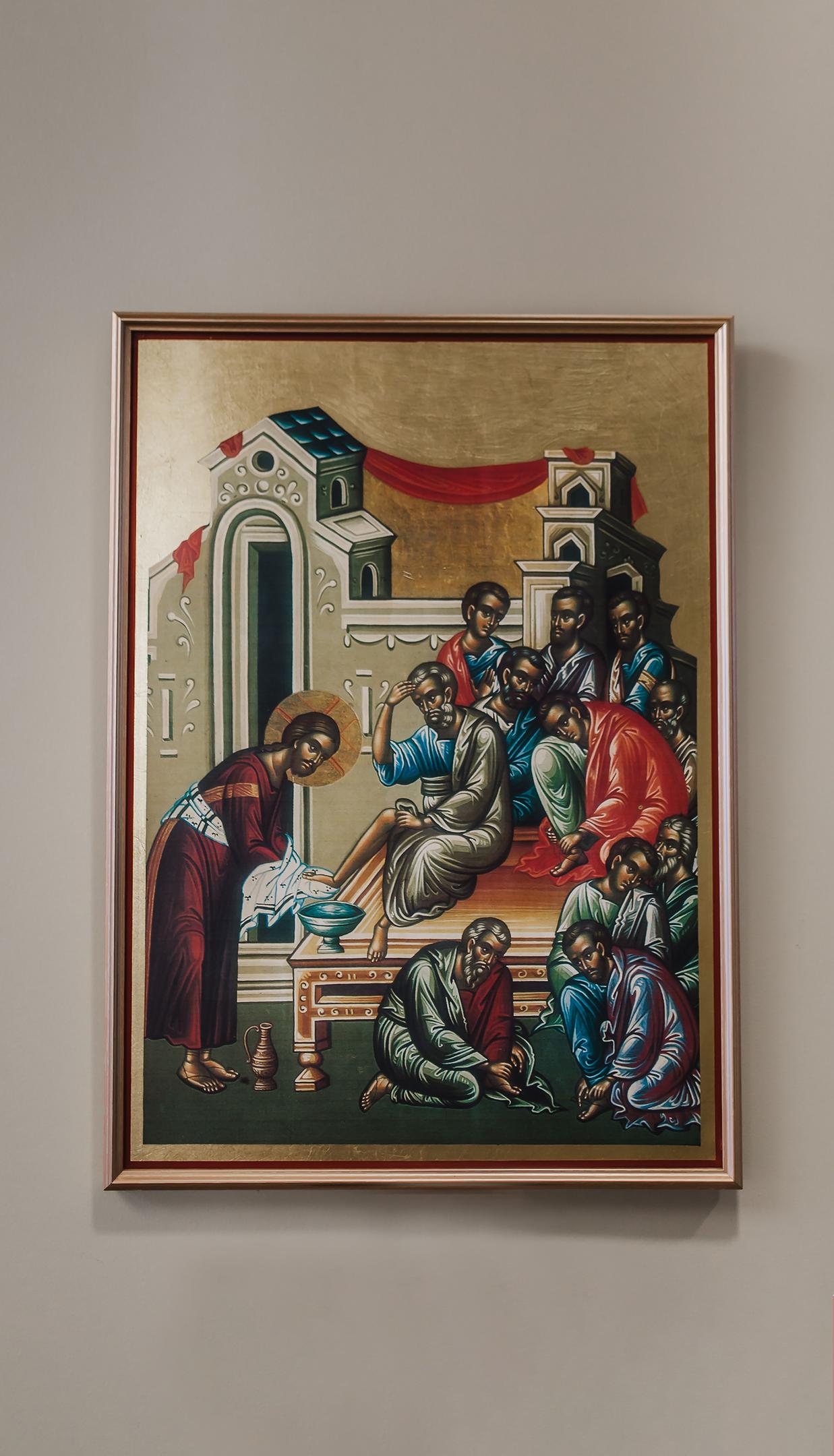
M A R 2 0 2 3 V O L 6 4 N O . 2
Stephen Loughlin, Ph.D. | President Matthew Kuhner, Ph.D. | Vice President & Academic Dean
Bernadette Bobrowski | Director of Marketing & Communications, Editor

Mary Colleen Drain | Admissions & Marketing Associate, Contributing Editor
Matthew Brown, MPA | Director of Admissions & Student Services
Katharina Nieves | Registrar & Coordinator of Academic Planning
Daniel Drain, Ph.D. (Cand.) | Coordinator of Academic Operations
Thomas Kubus | Finance & Human Resources Manager



Kelly Brunacini | Executive Assistant to the President
Shannon Toot | Bookkeeper & Financial Aid Coordinator
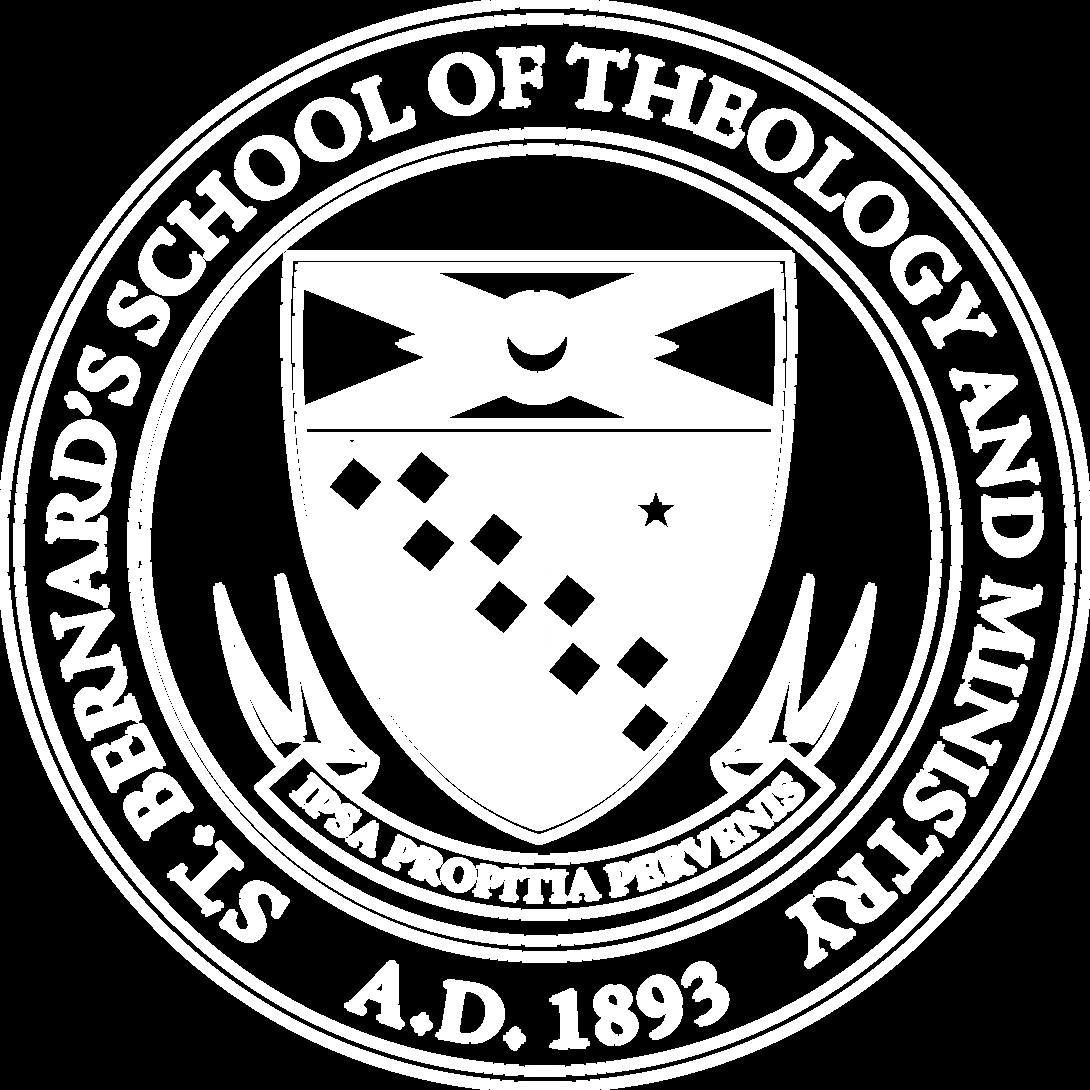
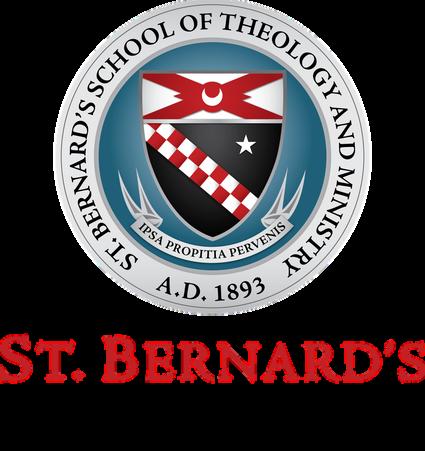
Inside This Issue 3 4 Letter from the President Light Kindled by a Leaping Spark: Education Beyond Information www stbernards edu 120 French Road Rochester, NY 14618 (585) 271-3657 40 North Main Ave. Albany, NY 12203 (518) 453–6760 Administration & Staff: St Bernard's Magazine is a publication of St. Bernard's School of Theology and Ministry. Follow us! @StBernardsSTM
Front cover artwork: "Christ Washes the Apostles' Feet," by Iconographer Pachomaion Gift from the Permanent Diaconate Class of 2006
LETTER FROM THE PRESIDENT

One of the defining marks of St. Bernard’s is that we are a School of theology and ministry. We recognize the importance both of contemplating God’s wisdom and the realization of this in our service to the Church and its people In this, we take inspiration from St. Thomas as we pursue a manner of life that is central to all who love God: "to contemplate and to give to others the fruit of that contemplation ”
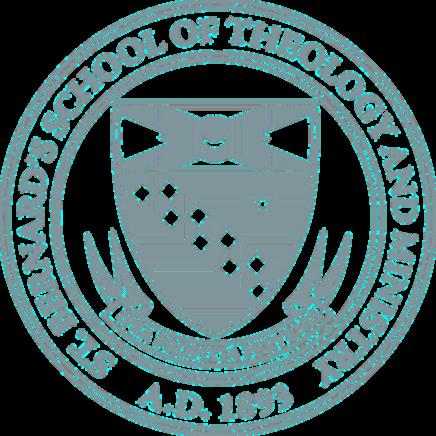
This composure arises naturally out of the Christian life, as we recognize that the wisdom we pursue is not, as it was for the Ancient Greek philosophers, the ultimate order and cause of reality in an abstract sense For the Christian, wisdom is a person, Jesus Christ, Who is the Word Incarnate, the wisdom of
God What was for the Ancient Greeks the height and perfection of the mind’s reach has now become a personal response to God’s call to know Him better and to be transformed in all that we think, do, and make. In this, we have been called out of darkness into His wondrous light, and we seek to honor Him through the effulgence of our lives, gifting to all the copious riches that He has showered upon us
For those of us who are privileged to study theology, we find that as we contemplate the Divine things, we do not merely wish to shine as Moses did in beholding God upon Mount Sinai. We seek, rather, to enlighten others to the glory and majesty of our God through our words, works, and lives, giving freely as we have received freely, and this most gratefully and with a humble heart.
In this edition of the St Bernard’s Magazine, we highlight the efforts of our faculty, students, and alumni as they manifest their response to their Beloved’s call through the teaching and scholarly work of our faculty, the dedication of our students to their degree and certificate programs, and the fruition of all this in the work upon which our alumni engage after graduation We hope that you are blessed by this chronicle of God’s action in our educational and formational community!
Sincerely,
Stephen J. Loughlin, Ph.D. President

3
by a
LEAPING SPARK

Education Beyond Information
It is hard sometimes to shake off the feeling, at age thirty-seven, of being completely outdated, a sort of youngish museum piece from the past. For one thing, I am a teacher, not a biomedical engineer, a computer scientist, or a TikTok celebrity. As if this were not enough, I teach philosophy at a Catholic theological school. I am not trying to confess a personal weakness. What I am trying to say is that every man or woman in my situation should feel the same way. I am of course being cheeky here, but the problem remains and it should give us pause. We are outdated, or as we like to say when we are having a good day, "countercultural." And so are our students. And yet, I wonder, why wouldn’t I exchange the work I do with my students and colleagues with anything else? Why does this work feel so important, exciting, and rewarding? Why do I rejoice so much in the intellectual, spiritual, and human growth of my students and my own, when it happens?
I often wonder about whether it still makes sense today to go to school instead of learning from the endless online resources to which most of us have access Why take a course in the history of philosophy – at St Bernard’s, ça va sans dire – when one can watch infinite hours of lectures on the same subject on YouTube for instance? The answer to this allegedly difficult question comes from an even elementary experience as a teacher in the classroom Any teacher knows that conveying information is neither the only aspect of his work, nor even the most fundamental one I became aware of this fact when I realized that, during a course on Plato that I still remember, I had to sacrifice some of the content that I had prepared in order to attend to the urgent and unexpected needs emerging from my students It is sometimes necessary to sacrifice information for the sake of one ’ s relationship with students – for the sake of truth! Truth, therefore, is not just information, but the dwelling place in which we rediscover what our common humanity is made for It is what gathers us together into an original unity and sends us off into an unknown future, patiently waiting so that each one of us might bring about the fruit of his or her own talent In other words, if truth had levels, "getting the facts right," "being informed," and "knowing one ’ s stuff" would only be the first level of truth It is precisely as Plato says in his Letter VII: truth is born in our soul all of a sudden after a long application with other people, with friends, “ as light that is kindled by a leaping spark ”
LIGHT KINDLED
4
But it would be a mistake to think of human relations as merely instrumental to the apprehension of truth. More deeply, they are an essential dimension of it. I personally love all the resources that YouTube and other platforms provide, but I also know that when it comes to the truth, the Internet can provide “data” at best, and only the ghost of human relationships at worst. I cannot count the times I have rediscovered the truth of something I had been teaching for years with conviction by simply hearing it pronounced anew by one of my students, with whom I am tied by a common history. Man, created in the image and likeness of God, truly has the power to make the truth manifest for what it is – ever ancient, ever new, as St. Augustine says of the beauty of God.

A course sometimes works and sometimes it does not There is something mysterious about this because it does not fully depend on how well I prepare for it or how deeply I know the subject matter It has happened that courses on topics on which I am an expert (whatever that means) have left some students completely untouched by what I had said In other cases, extemporaneous comments on subject matters I am less well versed in have literally put in motion the Socratic eros of the students. I have wondered about this fact a great deal, and I have come to the conclusion that the fecundity of a course is not simply a direct function of the quantity or quality of information to which the students have been exposed. The idea of communication understood as the transferring of information from one mind to another – the transferring of a message C from a mind A to a mind B, as de Saussure would have it – does not grasp what happens in learning and knowledge. In a sense, the information conveyed through words, propositions, handouts, readings, etc., is only a tool, or better, a sign, pointing beyond itself – as phenomenologists would say, pointing to the “things themselves.”
The class does not work when the students and I remain stuck on "this side" of language When it does work, however, students come to see, personally, what we have been talking about "Seeing" of course is a metaphor, but it truly grasps what occurs in genuine education Learning is being led to encounter layers of reality we had no idea existed Once again, as a teacher I have experienced the robotic and somewhat clueless repetition from students who have all the information but none of the seeing and, conversely, the knowledge of those who struggle to convey in words what they have truly come to see
In all my classes, I invite students to learn with care the words used by the philosophers we study, but always with the awareness that learning these words is never an end in itself. I am inclined to think that this dynamic becomes even more difficult when it is not kindled by a genuine human relationship. It is the face of the other – with his urgent needs, his tiredness, his frustration, his wonder, his desire – that forces me to always find new words for the truth (for that which cannot be reduced to words) and to re-propose these words from the Catholic tradition, which are "traditional" simply because they succeed in the difficult task of directing our attention beyond themselves, to the things themselves. This is moving for a Catholic – that the Word of God is a man, not a message – a man Who speaks, but in parables; a God Who transcends all words Who nevertheless decides to speak in human words; a man Who remains silent; a man Who teaches but Who also asks not to be repeated, but to be followed.
Dr Marco Stango is Assistant Professor of Philosophy at St Bernard's School of Theology and Ministry Dr Stango did his graduate studies in philosophy at the Catholic University of the Sacred Heart of Milan (Italy) and the University of Macerata (Italy) Before coming to St Bernard's, he was Assistant Professor of Philosophy at DeSales University in Allentown, PA, and he has also worked for other universities, both in the US and Chile He has articles published in various academic journals, including International Philosophical Quarterly, Proceedings of the American Catholic Philosophical Association, The Heythrop Journal, Idealistic Studies, and Transactions of the Charles S Peirce Society He is interested in the Catholic philosophical tradition, the history of philosophy, and all topics lying at the intersection of metaphysics and anthropology
5
Learning is being led to encounter layers of reality we had no idea existed.
HANDING ON AN ENCOUNTER WITH TRUTH, GOODNESS, AND BEAUTY: Introduction to Our Full-Time Faculty

St. Bernard’s exists for the sake of formation in the faith, animated and energized by the call to reunite theology and sanctity in the context of graduate education. While the entire community of St. Bernard’s contributes to this mission of formation, it is the core faculty that are most directly engaged in the art of formation and education. Our School is blessed beyond measure to feature faculty that are excellent scholars and dynamic teachers; most importantly, however, they each strive to know and love God, and to continually be led by the action of the Holy Spirit in the heart of the Church:
DANIEL DRAIN, PH D (CAND )


Professor Drain’s teaching, writing, and speaking is animated by a fundamental conviction that our belief in God and His self-revelation in salvation history makes a decisive difference in the way one thinks about the world, culture, the body, and reality itself. His recent work on the Second Vatican Council and the Church’s teaching on human sexuality in response to transgenderism has emphasized a rediscovery of the beauty of the Church’s teachings: we must study the texts of the Council and the anthropological teachings of the Church not as if they have been “tried and found wanting,” but rather as if they have been “found difficult and left untried” (G.K. Chesterton).
CHARLES HUGHES HUFF, PH.D.
Dr. Hughes Huff engages with Sacred Scripture in a way that emphasizes both the historical settings of these ancient texts and their theological import. In each text, the Holy Spirit works through the particular human idiom to reveal Christ The importance of both the human and divine aspect of Scripture has led him to archaeological research in Iron Age Jordan (Moab), work on textual imaging in the University of Rochester’s Lazarus Lab, and a forthcoming summer course on the Song of Songs and mystical commentary, which will focus on the beautiful Hebrew idioms in the book, as well as the commentary of Origen and St. Bernard of Clairvaux.
6
MATTHEW KUHNER, PH.D.

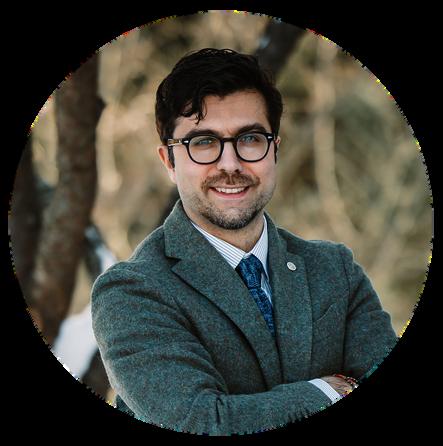
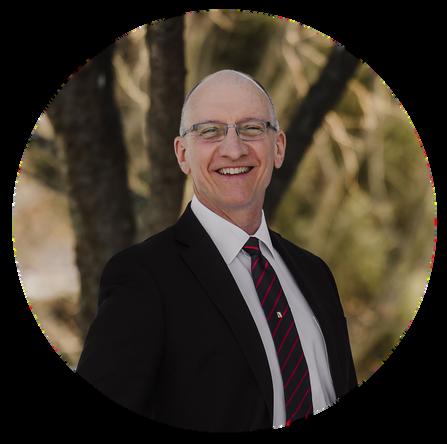
Dr. Kuhner’s approach to systematic theology and catechetical studies is driven by a constant return to the sources – the sources of theology (Scripture, the Fathers, the Doctors) and the abiding Source of our very being – so that our contemporary witness to the Gospel might radiate with both freshness and fullness. He finds no greater joy as a teacher and as a speaker than gathering with others at the headwaters of our faith, contemplating the mysteries of Christology, ecclesiology, and the rediscoveries of 20th century Catholic theology
LISA LICKONA, S T L

Professor Lickona brings to her work a great love for the saints, as she teaches, writes, and presents at the intersection of theology and sanctity. She seeks to introduce her students to God's work in the lives of the saints so that they are able to discover His work in their own lives. Prof. Lickona introduces students to the practice of theology as we encounter it in the first chapter of the Gospel of John where Jesus invites Andrew and John to "come and see." And after spending a little time with Him, we are changed; we want to follow Him. Having encountered this great love, we find ourselves desiring to know more: love drives knowledge, and deeper knowledge, love.
STEPHEN LOUGHLIN, PH.D.
Dr Loughlin’s work is marked by a lifelong friendship with the person and works of St Thomas Aquinas, who has served as a witness of a philosophy pursued within the context of authentic faith His attention to philosophical rigor is outmatched only by his appreciation for the symphonic nature of truth (owing much to his previous musical training!); the result is a dynamism that springs forth from the heart of his work, especially when he considers the nature, constitution, and call of the human person in all of his or her hylomorphic rationality and affectivity
MARCO STANGO, PH.D.

Dr. Stango came to philosophy as a consequence of having reverted to the Catholic Church between high school and college. He considers this a "proof" that "faith presupposes and perfects reason" – whatever small amount of reason one might have! In his research and teaching he shows his love for all issues lying at the intersection of metaphysics and anthropology
While constantly drawing from the tradition, he is also interested in contemporary authors and in the new philosophical problems posed by our time. In the classroom, he invites his students into the joy of genuine questioning and of the communal love of wisdom.
7
AN OPPORTUNITY FOR GROWTH: Highlighting a Current Student
St Bernard’s graduate degree programs are designed to assist students of all ages in coming to know and love Our Lord and His Church through theological, philosophical, and pastoral engagement Men and women, cleric and lay, ecclesial ministers and those seeking personal formation and edification enroll in our degree programs, seeking the good, the true, and the beautiful alongside one another.
We are honored to highlight a current student, Anna Flaitz, in this issue! We sat down with Anna to hear her journey of studying theology at St. Bernard's. It was an immense gift to hear her story; her joy and enthusiasm for the faith were contagious:

How did you hear about St. Bernard's and why did you decide to apply?
After my conversion in high school, I found the Catholic faith to be really interesting and exciting. In college, when I wasn’t studying for class, I’d pick up the Catechism and read it for fun At the end of my undergraduate experience, I had no clue where I wanted to be or what I wanted to do. That’s when my sister recommended I look into studying theology since I was doing it for fun anyway! I prayed about it and then my RCIA instructor recommended I look into St. Bernard’s. The mission statement on the website really spoke to me, so I audited a class over the summer and then one day in Adoration the Lord gave me a clear answer that I should do this and do something different with the rest of my life
8
How has St. Bernard's formation impacted your spiritual life and understanding of our faith?
It brings me a lot of joy I learned so much in Professor Lisa Lickona’s Spiritual Formation course last semester! One thing that she reminded us was, “there are no cookie cutter saints,” which is amazing I read something new and learn something new every day, and my studies have helped me to put my faith in God’s plan for my life.
Describe one important thing you ' ve learned so far as a student here.
Overall, just an understanding of the importance of challenging yourself and creating an opportunity of growth, especially in your understanding of God and your relationship with Him
What advice would you give to those who are considering St. Bernard's for their graduate studies?
How do you hope to serve the Church through/with the education you ' re receiving?
There’s that country song that says, “you make a plan and hear God laughing ” I love that song because it’s so true! For now, the plan is to work in education as a theology teacher, but I’m open to seeing what’s down the line I’d also like to continue taking courses at St Bernard’s after I graduate.

Audit a class in the summer, for sure! It’s a great way to get to get to know the faculty and see if St. Bernard’s is right for you.
You’re almost finished with your first year at St. Bernard’s. What is your favorite thing so far?
The people! I feel like it’s so cheesy but it’s true: the professors, the staff, and my classmates are so nice. Being one of the younger students, I’ve learned a lot from my classmates too. I think that there is something special about being surrounded with others who are on the same journey as you It isn't a journey just to a degree or career, but one that transforms you as a whole. It's so wonderful to share this experience of growth with others who are experiencing their own at the same time
Anna Flaitz is a first-year student in the Master of Arts in Theological Studies program. She is a recent graduate of SUNY Geneseo where she received her Bachelor of Science in Business with a minor in Biology. Anna entered into full communion with the Church through RCIA in 2016 and is a parishioner at Our Lady of the Valley parish in Hornell, NY.
9
My faith began in my family. My
parents, ever faithful and prayerful, were such great examples, making sure that me and my six siblings attended Mass weekly and that we prayed together as a family.
I took my faith for granted for a long time, but because of my parents’ example, I never stopped going to Mass. After college, I began altar serving at the encouragement of a happy and energetic priest at my parish. At the same time, I also began teaching confirmation prep classes in my parish. Soon after, I experienced a renewed faith in the Eucharist as I was serving at Mass and watching the priest pray the words of consecration I began to experience more fully the spiritual effects of
HIGHLIGHTINGACURRENT PRE-THEOLOGYSTUDENT
Jack Cairns
the Eucharist as I spent more time in prayer in front of our Lord in the tabernacle. I also tried to receive our Lord more often and with due preparation.
Being drawn into the beauty of the priesthood, it also became clearer to me how much priests are needed to teach the truth, to defend the weak, and to battle for souls. In prayer, I felt that the Lord may be asking me to be a priest; I prayed for the willingness to do whatever God wanted me to do.

In 2021, I decided to take a step into formal priestly formation for the Diocese of Albany, which included studies at St Bernard’s Attending St Bernard’s has been one of many gifts I have received in my vocation journey I have found the academic studies to be both rigorous and outstanding What I love most is the fact that the professors are faithful to the Church and encourage me, through their example, in the Christian life
The one thing that I look forward to most about being a priest is hearing confessions, thereby being a part of the bestowal of Christ's mercy and compassion. I have confidence that God will continue to guide me in this journey. I also know that my peace is found in doing God’s will. There is no true peace in anything else! Please pray for me and my fellow seminarians
Jack Cairns is in his second year of pre-theology studies for the Diocese of Albany. He is studying Catholic Philosophy at St. Bernard’s as a prerequisite for further studies in theology. Jack grew up in Rochester, NY, is a graduate of McQuaid Jesuit High School, and earned his Bachelor of Science in Business Administration from Marquette University.

PREPARINGTOSERVE:
10
MINISTRY AS MAGNANIMITY:
Highlighting an Alumna
I work at St. Benedict and St. Leo the Great parishes in Amherst, NY, as the Pastoral Associate of Liturgy and Communications. Originally I was hired as a Music Director, but my theological formation at St. Bernard’s has helped me expand into further roles in ministry outside of music

Currently, I wear many hats in ministry: directing the music program at St. Benedict (including a parish choir, young adult choir, and children’s choir), planning/playing music for all Masses (weekend/Holy Day Masses, funerals, weddings, school Masses), coordinating liturgies and special events, as well as handling our online communications. Additionally, along with my wonderful co-workers, I founded and run our young adult ministry, Young Adult Professionals (YAP Buffalo), which helps young adults develop spiritually, personally, and professionally.
My heart is in building relationships with our parishioners, school children, and the broader Church and local community I want to expand what we think of as Church: Church is not only the celebration of Mass, it’s also when we go out to sing at nursing homes, when we distribute meals to those in need, or simply connect with others over some coffee and donuts. I find beauty in the incredible diversity of our Church – it’s one of the few places where people of all ages, backgrounds, incomes, and ethnicities come together to pray with and learn from each other. I also love my work as a musician, as I get to pray and connect with many different churches and communities across western New York.
Thanks largely to my studies at St Bernard’s (and particularly my thesis writing process), I learned a lot about how theology
can work with other disciplines to bring about a more integrated understanding of faith and life. Additionally, I am now more confident in leading discussions and giving talks to groups on various topics in spirituality and theology. I also find that I am able to answer questions and articulate my faith more clearly (and as someone who works with young adults, they have many good questions that keep me growing and learning!)
Maria Chomicka, Class of 2022, works as the Pastoral Associate of Liturgy and Communications at St Benedict and St Leo the Great Parishes in Amherst, NY, where she coordinates communications and social media for both parishes, directs the music ministry at St. Ben's, and coordinates the Young Adult Professional group. She is trained professionally as an organist and pianist and can often be found playing at concerts and other events around western New York She recently finished her Master of Arts in Theological Studies at St Bernard's and is always seeking new ways to bring faith and music together, hoping to bring more beauty and love into the world

11
A DISCERNMENT JOURNEY: TOWARDS THE PERMANENT DIACONATE

I grew up within a Catholic family, but never really learned about my faith beyond the basics necessary to receive the Sacrament of Confirmation Then, during my college years, I grew apart from the “Church of my parents;” I came back to the Church following Penelope, the woman who would eventually become my wife. After moving to the United States, God found me, my wife, and our children as well. We recognize that God put many people in our path who taught us about our faith. Later we also met a community of missionaries, who with much love and perseverance, helped us and taught us to not just know about God, but to know God through His Word and encounter Him in prayer.
If I look back, there isn't a definite moment in which I thought: “I want to be a permanent deacon….” Instead, it was a slow process which spawned throughout several years. I must have started to hear the calling about eight or nine years ago. I remember many times during the consecration, while kneeling on the side of the altar serving as a lector at Mass, I felt Him drawing me near and telling me in my heart that He wanted me to serve Him there. During that time, strangers would approach me and ask if I had ever considered becoming a deacon. Finally, in 2019, God worked out everything for me to start the diaconate program as soon as my wife and I decided to move to the Capital Region. One by one, the Lord kept removing roadblocks, making it effortless for me to start formation with the Diocese of Albany.
God has blessed us with many, many priests whom we have had the chance to get to know and be close to. And during my time of discernment, in which I kept listening to His invitation, He put even more people on our path, several of whom were deacons – beautiful and righteous men. They have shown me the compromises and responsibilities of their vocations, but more importantly, the joy of serving Him through this ministry. Fr. Rick
12
Lesser had an influence in me getting started with the program here in the Diocese of Albany, even before he became the Director of Diaconate Formation. In addition, Fr. George Fleming has given all the support and prayers needed as my pastor. I continue to be blessed by getting to know many deacons that support, encourage, and guide me, and I thank God for all of them.
My wife and I believe the saying that: “in the Sacrament of Marriage, in the love given to each other, nourished by the grace of God, there is also a call to share the Love we receive from God with others, and doing so in service. But we cannot give what we don’t have, and we cannot speak of what we don’t know ” For this reason, the formation and education I have received through St Bernard’s has enabled my wife and I to discover the richness of our faith and go on to share it with others This aspect of diaconate formation helps us not just to know more about the history, traditions, and teachings of God’s Church, but to be
prepared to better help, with His Grace, the people He will send us to serve.
The call to the diaconate was initially for me, and the indelible mark of Holy Orders will be upon my soul, marking it with the responsibilities, burdens, and joys of that vocation. But at the same time, the answer to that call must come from both husband and wife; for this reason, my wife, Penelope, tries, as much as possible, to be part of my formation by auditing every class with me. She shares: “The Lord has placed in my mind and in my heart the desire for the well-being of those around me So I attend classes and in doing so support my husband as well ” Being together during this process as a couple helps my wife and I to learn and speak “the same language,” a new one for both of us, so we may experience how amazing our faith is, together
Eric and Penelope Ramirez moved to the United States from Mexico in 2006 and are members of Corpus Christi Catholic Church in Round Lake, NY. The call to the permanent diaconate is God’s idea, and their response is one of gratitude.


13
"Being together during this process as a couple helps my wife and I to learn and speak 'the same language,' a new one for both of us, so we may experience how amazing our faith is, together."
ST. BERNARD'S ON THE ROAD
Building Up the Local Church
AS A COMMUNITY OF CATHOLIC HIGHER
education, St. Bernard’s is someplace – it is part of a particular community. The Diocese of Rochester and the region of upstate New York have been the scope of its ministry for over a century, with the city of Rochester as the site of its main campus and home to the majority of its faculty and staff. At the same time, the recent expansion of the School has enabled it to be anyplace across the world, through its dynamic distance education program. What a gift to welcome students into our community of formation from wherever they live, from so many different states, time zones, and countries!
The School’s unique shape – the fact that it is someplace and anyplace simultaneously – is a key dimension of how it fulfills its formational and educational mission In order to achieve this, the School privileges two principles integral to the Catholic understanding of social organization, namely, solidarity and subsidiarity

In the context of the School’s educational mission, solidarity is characterized by a communal dedication to the Catholic faith, loyalty to the teaching authority of the magisterium of the Catholic Church, the pursuit of excellence in graduate theological and philosophical education,
and the desire to serve the new evangelization anyplace the School is present All students, faculty, and friends are welcomed into the pursuit of this common good that marks our institution from top to bottom
Subsidiarity is also essential for St Bernard’s to thrive, with care and attention paid to the character, purposes, needs, and challenges of each student and each region served by the School Such attentiveness to both the locale and the individual is particularly essential for the School’s service of the someplace in which it finds itself, namely, the Diocese of Rochester and upstate New York
These institutional principles of solidarity and subsidiarity are at the root of a new initiative, the re-launch of a legacy program at our School: St. Bernard’s on the Road. Before the onset of the COVID-19 pandemic, St Bernard’s on the Road was a particularly powerful expression of our School’s mission; it featured the ongoing availability of St Bernard’s faculty for affordable, in-person presentations to parish communities throughout upstate New York. In this way, the School’s solidarity in service of the new evangelization radiated beyond the boundaries

14
"Christ and His Disciples on the Road to Emmaus," by Jan Wildens, 1640
of degree programs and classroom experiences, and extended into the local situations of parish communities, assisting them to deepen their knowledge and love of God.
Our current post-pandemic context gives rise to many “joys and hopes… griefs and anxieties”
(Gaudium et Spes, §1) While there is immense joy at gathering together once again without such potent anxiety about health risks posed to oneself and others, there is also the concern that the joys of parish community life experienced prior to the pandemic will never quite return In its attempt to take up “the duty of scrutinizing the signs of the times and interpreting them in light of the Gospel”
(Gaudium et Spes, §4), St Bernard’s has discerned that the time has come to deepen the School’s direct service to parish communities in upstate New York by making available its faculty members once again for the sake of evangelization, catechesis, and authentic communion among the people of God
There are many current opportunities for parish communities and individuals to build up their faith through the engagement of pre-recorded talks, series, and programs. While so many of these programs are quite excellent, they are never as ideal as live encounters among persons, exchanging not only content, but the personal witness of their lives as they come together for dialogue and contemplation of the divine mysteries. St. Bernard’s is dedicated to this live encounter among persons throughout its educational offerings, cherishing the opportunity to engage in-person in the classroom and/or in live discussion with men and women from around the country in Zoom-based classes. St. Bernard’s on the Road follows the same approach: we are not simply offering parishes helpful content – we are offering the total witness brought by the faculty member, in hopes that in this encounter and dialogue the building up of the faith in one and all will result.
Our great hope is that St Bernard’s on the Road will provide a beneficial spark within parish communities, by which the Holy Spirit may more readily inflame the community in love of God and neighbor By drawing community members together – perhaps for a single evening only, or repeatedly for a series of presentations – the strength and vivacity of the community might again be rediscovered by those present, aiding in some small way the pastor and his staff in revivifying and galvanizing the local Church, which has so frequently suffered in the wake of our cultural forgetfulness of the importance of true togetherness In order to assist the parish community in this way, we have endeavored to keep the cost to the parish quite humble: the School has set the small fee for all St Bernard’s on the Road presentations with confidence that no parish will be disqualified because of limitations of budget

Our faculty have made themselves available for presentations that range from those that address the essentials of the Catholic faith, to those that speak to important initiatives in the life of the Church, such as the Eucharistic Revival and the Synod on Synodality, as well as those topics that sometimes provoke consternation or controversy, such as the role of women in the Church and the Church’s teaching on human sexuality and the call to love.
As an institution that finds itself someplace and anyplace, St Bernard’s strives to be faithful to its mission of formation in the faith in everyplace it finds itself welcomed St Bernard’s on the Road enables the School to carry forth its mission, born from the heart of the Church, into the heart of the Church, into parish communities, where Christ comes to His people again and again in sacramental communion. There is no greater honor for our School than to help build up the local Church, so that the Body of Christ might be strengthened in every way!
To learn more, visit: www.stbernards.edu/on-the-road
15
AUDIT ONE SUMMER COURSE FOR FREE!
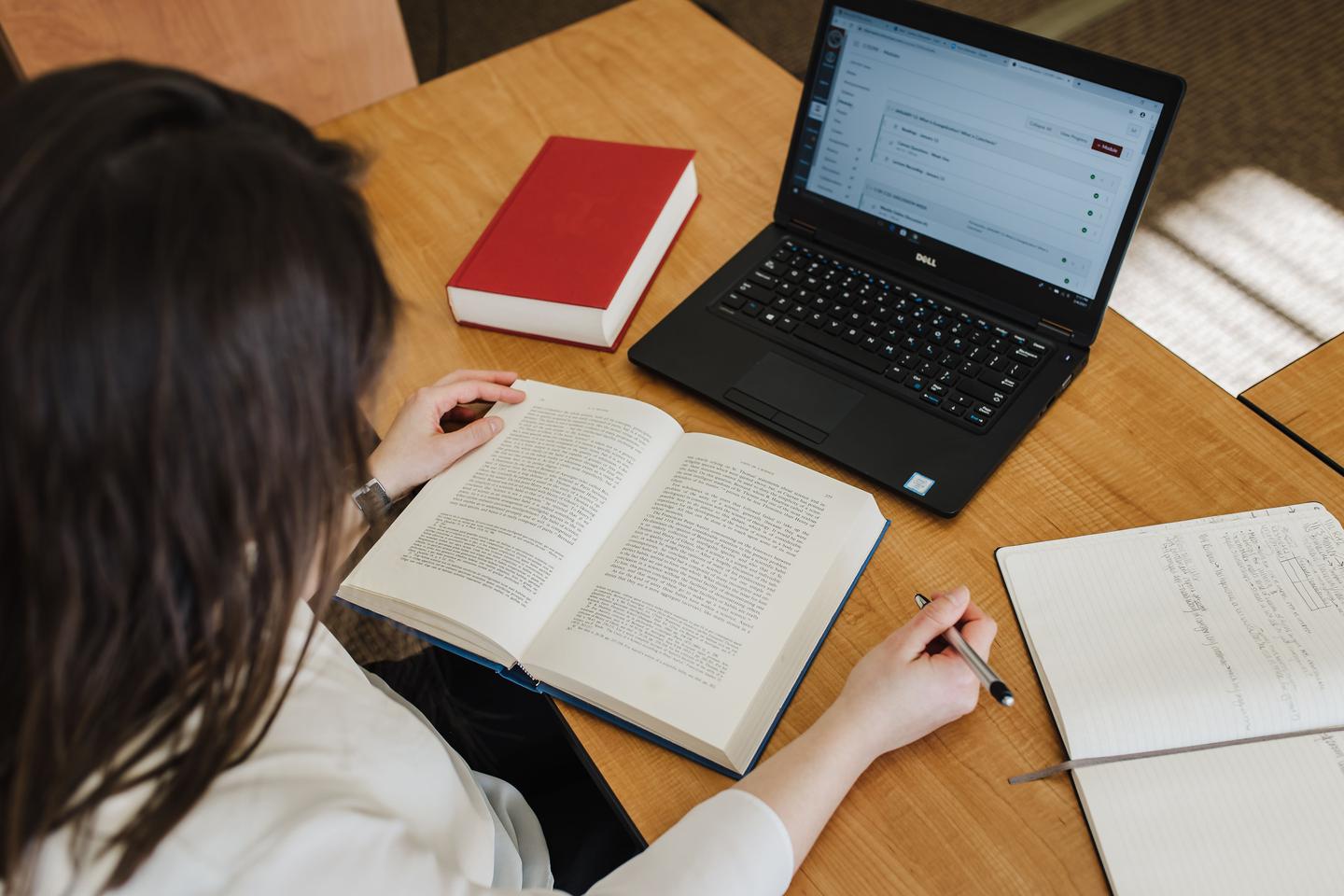
We are delighted to once again offer the opportunity to audit one of our Summer 2023 courses for free, thanks to the generous support of the Knights of Columbus. This initiative began in 2020 at the height of the pandemic and has continued since, drawing over 700 students from all over the world. Come and join us for a summer of reflection and contemplation!
www.stbernards.edu/one-free-audit

120 FRENCH ROAD ROCHESTER, NY 14618 Non-profit Org US Postage Paid Rochester, NY Permit No 699

































